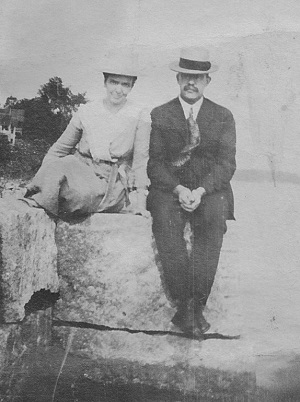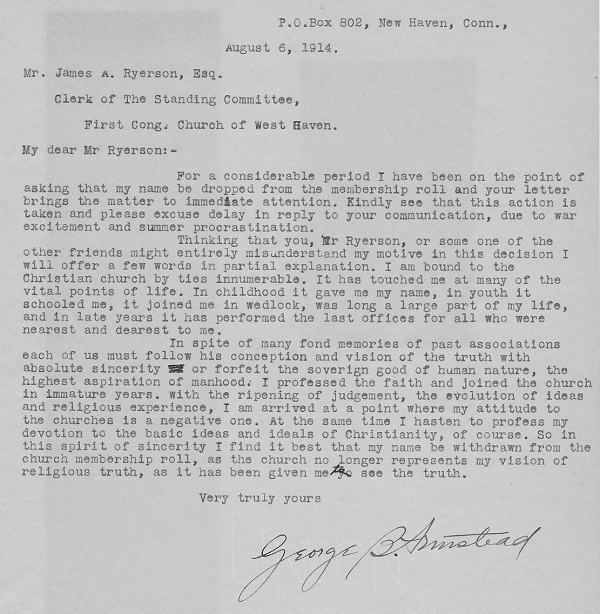What about the boy?
George B. Armstead and his mother, Louisa Matilda (Brooks) Armstead, rented a home in Whitneyville (Hamden) in 1913, the home
being close to the Whitneyville Congregational
| Church and to the Lake. George's child, James Gorham Armstead
of course went there to live with them... In adult years James said he could remember losing his father's jack knife in the grass
out near the barn and recalled the hunt for it. He also recalled hunting for chestnuts under the trees near the church and the lake. James' grandmother, Louisa Matilda Brooks Armstead, died while this was the family home, January 6, 1914. The child, James, since his father had no adequate way of caring for so young a boy, immediately was taken to the home of his Uncle and Aunt, Mr. and Mrs. Howard E. White who then lived at the corner of Boulevard and Maple Street, New Haven. Mrs. White was the former Ella Gorham, sister of James' mother... George gave up his home in Whitneyville, and went to live with his aunt, Miss Eunice K. Armstead. |
 Ella and Howard White |

